All rights reserved.
Designed by C. H. Westmoreland
Typeset in Whitman with Magma Compact display by Tseng Information Systems, Inc.
Library of Congress Cataloging-in-Publication Data appear on the last printed page of this book.
Duke University Press gratefully acknowledges the support of the Hull Memorial Publication Fund of Cornell University, which provided funds towards the production of this book.
Acknowledgments
This book traveled an itinerant path to publication, with different sections written in Baltimore, San Francisco, Los Angeles, Durham, Chicago, Ithaca, and New York City. Along the way I benefited from the suggestions and criticisms of many friends and colleagues, whom I gratefully acknowledge here.
In a distant but important sense, the project was first inspired in the undergraduate classrooms of two remarkable teachers at the University of California, Santa Cruz: Peter Euben and Jack Schaar. Their political theory courses were life-changing in the most elevated and pedestrian of senses. On the elevated side, Peter and Jack taught their students that critical reflection could be called by a commitment to democracys unfulfilled promise. On the pedestrian side, they suggested something to do after graduation: political theory as vocation and avocation. Peter remains a close friend, and both of their examples are an inspiration.
The book took early shape as a doctoral dissertation at Johns Hopkins
University, where Bill Connolly, Dick Flathman, and Kirstie McClure created an exciting environment to study political theory. I am grateful for their ongoing advice and encouragement. I also thank Jane Bennett, Sharon Cameron, Matt Crenson, Jennifer Culbert, Suzette Hemberger, Anthony Pagden, Dorothy Ross, Giullia Sissa, Gabrielle Spiegel, and Larzer Ziff. As is often the case in graduate school, a lot of learning took place outside of the classroom. I was lucky to be surrounded by a wonderful cohort of aspiring theorists at Hopkins, many of whom remain friends and influences. I thank in particular Adam Lerner, Jeff Lomonaco, Davide Panagia, and Kam Shapiro.
Cornells Government Department has been a terrific place to teach and research, thanks to the generosity of the institution and to the engaging smarts of my students and colleagues. I thank in particular my theory colleagues Susan Buck-Morss, Burke Hendrix, Isaac Kramnick, Diane Rubenstein, and Anna-Marie Smith. I am also grateful for the supportintellectual and otherwisethat I have received from Glenn Altschuler, Richard Bensel, Val Bunce, Gary Davis, Mary Katzenstein, Ron Herring, Peter Hohendahl, Jonathan Kirchner, Dominick LaCapra, Larry Moore, Ted Lowi, Hunter Rawlings, Ken Roberts, Harry Shaw, Sid Tarrow, and Nick Winter. The political theory students at Cornell have continually challenged my thinking and helped me navigate the imperatives of teaching and research. I thank the participants in my graduate seminars on democratic theory, language and politics, and American political thought, particularly Desmond Jagmohan, Shannon Mariotti, Alison McQueen, and Michelle-Renee Smith. I am also grateful for the friends at Cornell who have helped make Ithaca home: Becky Givan, Ellis Hanson, Cary Howie, Phillip Lorenz, Tracy McNulty, Judith Peraino, Masha Raskolnikov, Camille Robcis, Amy Villarejo, and Brad Zukovic.
In the broader academic world this project has benefited from the suggestions of more people than I can list or remember. Remembered thanks to Lawrie Balfour, Banu Bargu, Fonna Forman-Barzilai, Susan Bickford, Keith Breen, Tim Breen, Rom Coles, Emilios Christoloudidis, Kim Curtis, Joshua Dienstag, Lisa Disch, Tom Dumm, Stephen Engelman, Jim Farr, Sam Frost, Michael Gillespie, Ruth Grant, Jay Grossman, Michael Hardt, Vicky Hattam, Stanley Hauerwas, Don Herzog, Catherine Holland, Andreas Kalyvas, Nick Kompridis, Sharon Krause, John Larson, Jill Locke, Karuna Mantena, Lida Maxwell, John McCormick, Sarah Monoson, Michael Morrison, Andrew Norris, Paulina Ochoa-Espejo, Melissa Orlie, Paul Patton, Nicholas Phillipson, Mark Reinhardt, Andy Schaap, Mort Schoolman, Mike Shapiro, George Shulman, Tracy Strong, John Tambornino, Scott Veitch, Dana Villa, Hayden White, and Catherine Zuckert. A special thanks to three friends whose intelligence and generosity have made the political theory world a better place to live and work: Bonnie Honig, Patchen Markell, and Liz Wingrove.
Every one of these chapters was presented at a conference, workshop, or colloquium. I would like to thank my hosts and audiences at the American Bar Foundation, Cornell University, Duke University, the New School for Social Research, Northwestern University, Queens University (Belfast), the University of California, San Diego, the University of California, Los Angeles, the University of Chicago, the University of Exeter, the University of Glasgow, the University of Illinois, Champaign-Urbana, the University of Melbourne, the University of Minnesota, Twin Cities, and the annual meetings of the American Political Science Association and the Western Political Science Association. For research support I thank the Ahmanson-Getty Fellowship at UCLAS Center for 17th- and 18th-Century Studies, the New Directions Postdoctoral Fellowship at Dukes Franklin Center for Interdisciplinary Research, the National Endowment for the Humanities, and Cornell Universitys Mellon Faculty Fellowship and Institute for the Social Sciences.
Courtney Berger gracefully guided this project through the publication process, and I am grateful for her patient support. Kate Washingtons and Fred Kamenys copyediting helped me cut the manuscript down to size. The manuscript was also greatly improved by the keen editorial suggestions of two anonymous reviewers for Duke University Press. Versions of three chapters were previously published elsewhere, and appear here in revised form. I thank the editors and reviewers of these earlier essays. appeared as Staging Dissensus: Frederick Douglass and We the People, in Agonistic Politics and the Law, ed. Andrew Schaap (London: Ashgate, 2009). Portions of the revised chapters are reprinted here with the permission of these publishers.
Finally, I would like to thank my family in Salt Lake City for their love, good humor, curiosity, and support. My partner Jerry Johnson has endured my occasional bouts of writers self-absorption, intellectual frustration, and political outrage, and he has done so for the most part with loving patience. I love him for that, and also for walking the dogs, learning to cook, and not letting me take myself too seriously.
Democracy inaugurates the experience of an ungraspable, uncontrollable society in which the people will be said to be sovereign, of course, but whose identity will constantly be open to question, whose identity will remain forever latent. CLAUDE LEFORT, Democracy and Political Theory

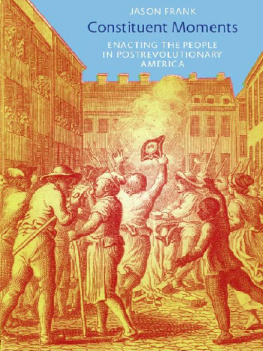
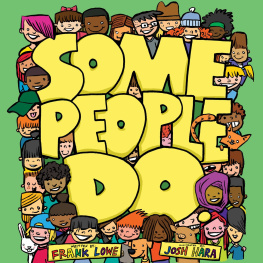

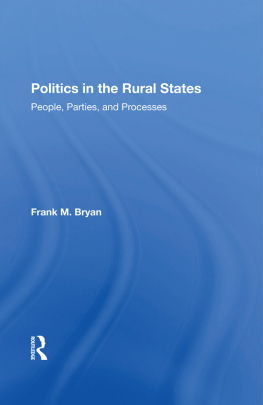

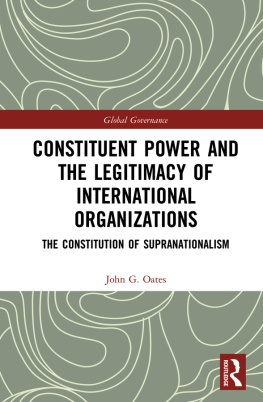
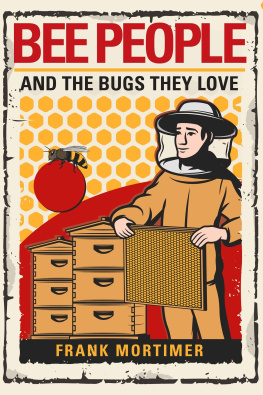

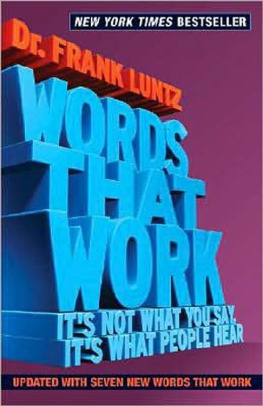
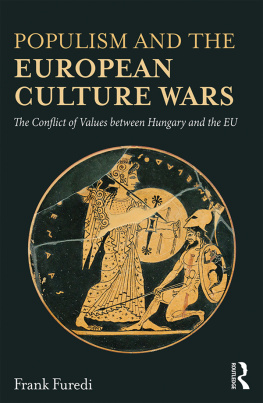
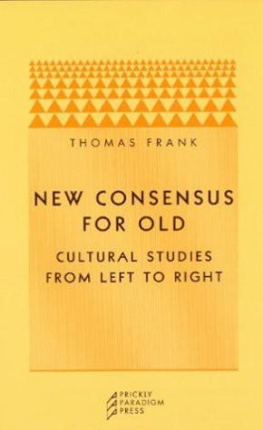
 Constituent Moments
Constituent Moments

